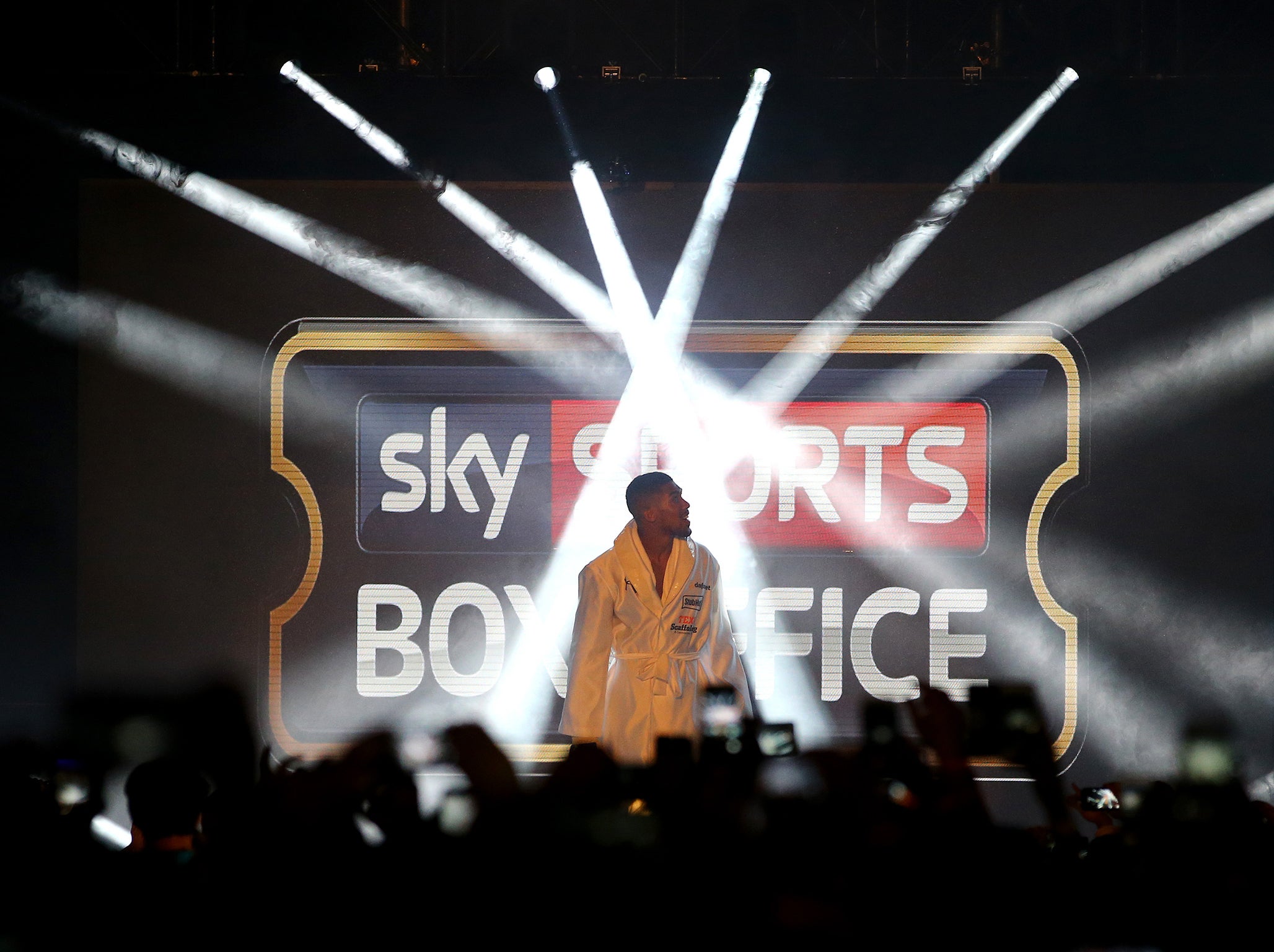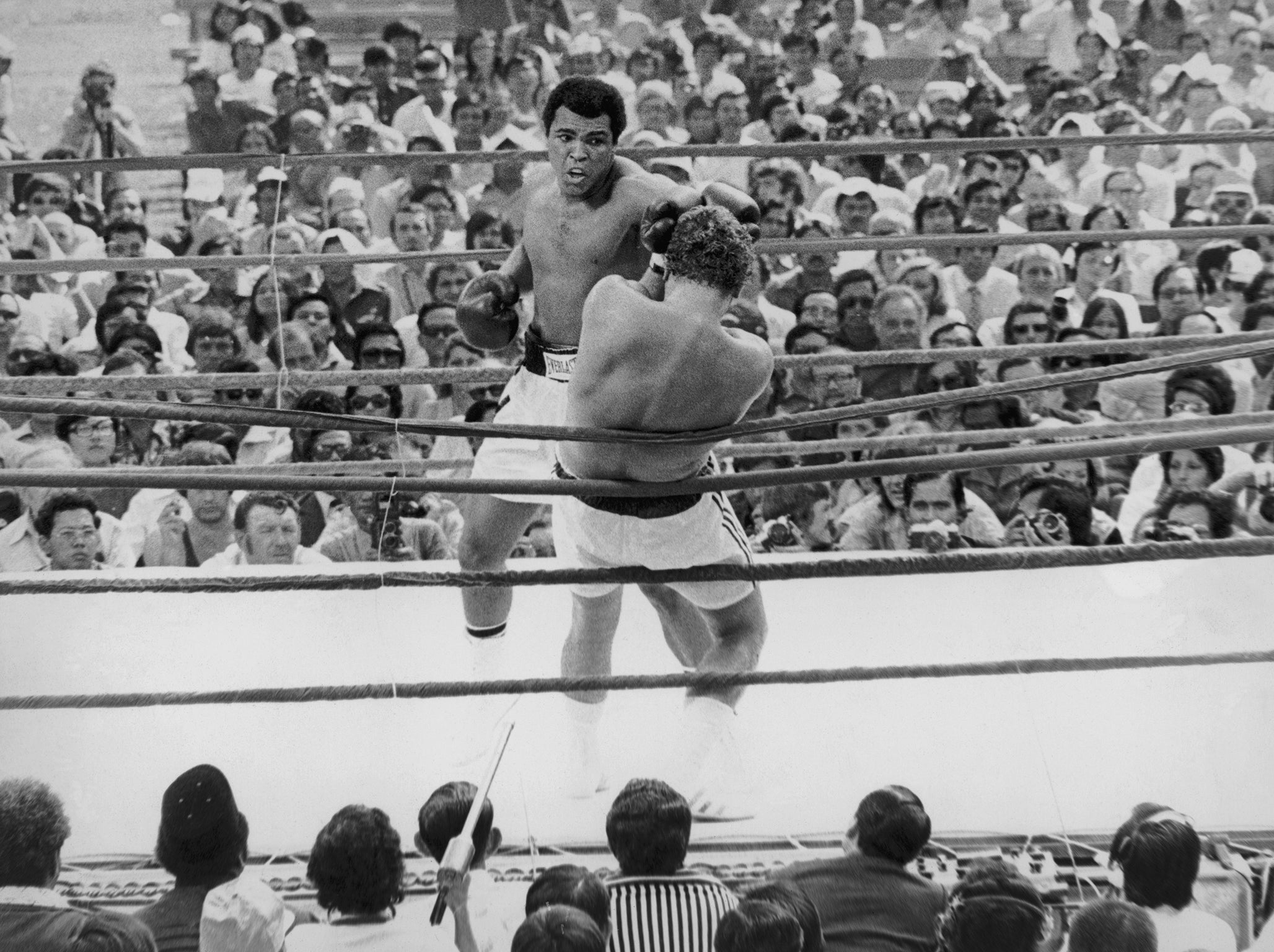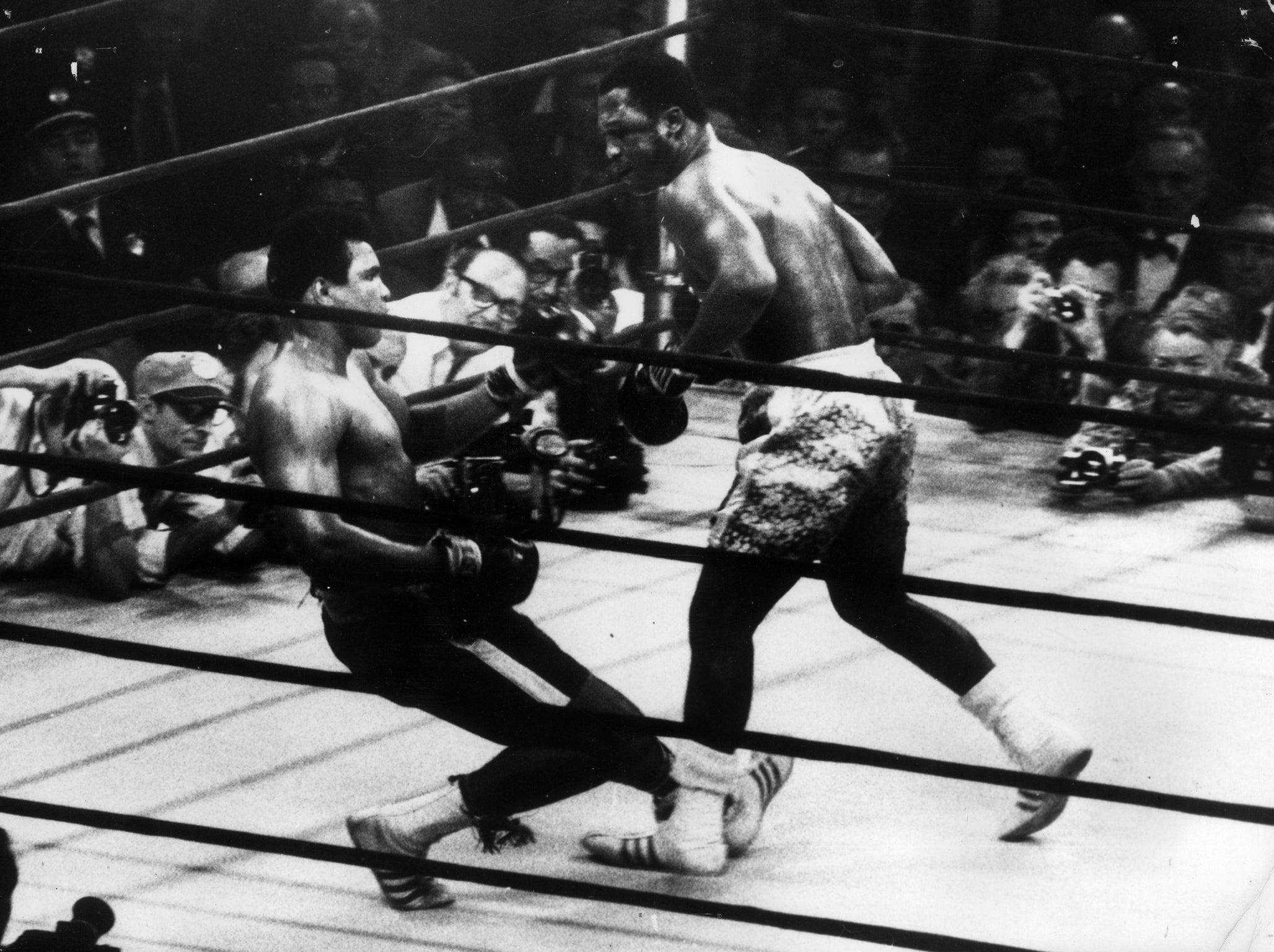Why the modern business of boxing is stopping Anthony Joshua vs Deontay Wilder becoming a reality
Boxing is not as it was in the seventies, when four of the finest heavyweights fought each other ten times in exotic locations in fights that shortened careers and created history

Your support helps us to tell the story
From reproductive rights to climate change to Big Tech, The Independent is on the ground when the story is developing. Whether it's investigating the financials of Elon Musk's pro-Trump PAC or producing our latest documentary, 'The A Word', which shines a light on the American women fighting for reproductive rights, we know how important it is to parse out the facts from the messaging.
At such a critical moment in US history, we need reporters on the ground. Your donation allows us to keep sending journalists to speak to both sides of the story.
The Independent is trusted by Americans across the entire political spectrum. And unlike many other quality news outlets, we choose not to lock Americans out of our reporting and analysis with paywalls. We believe quality journalism should be available to everyone, paid for by those who can afford it.
Your support makes all the difference.During five years in the Seventies four of the finest heavyweight boxers ever gathered in any epoch fought each other ten times in exotic locations in fights that shortened careers and created history.
Each of the men survived, each scarred for life, adored forever for their bravery and they left behind in fights at an African dawn, in the raging Caribbean sun and inside the blood-stained walls of the boxing citadels in New York enough of their souls that they would never be the same again.
Boxing has always been about sacrifice and that is what makes the men we adore special.
Muhammad Ali was in seven of the fights, Joe Frazier five, George Foreman and Ken Norton four each during a decade of unequalled brilliance by the big men that defined the sport. Three of the four are now dead and it has become increasingly unnecessary to divide up the spoils by remembering the winners and losers from their fights.
The quartet were also surrounded throughout the Seventies by exceptional and often forgotten or neglected heavyweights, men that added to the decade’s position of excellence and men that have been allowed to slip away to early deaths or virtual obscurity.
“I grew up looking at these guys and thinking I hope they are retired when I turn pro,” joked Gerry Cooney in Las Vegas a day or so before the Floyd Mayweather and Conor McGregor fight; Cooney beat a succession of them by 1980 when he was a fighting beast.

Ron Lyle killed two men, served time and terrorised the division and Earnie Shavers, still acknowledged as the hardest puncher in history, mixed with the finest before landing on the doors in Liverpool. Jerry Quarry at the start of the decade and Larry Holmes at the end are contrasting sentinels, bruised witnesses to the carnage these men were capable of.
Joe Bugner is right in their company, arguably the most underrated British boxer in history; his truly savage twelve-round brawl in 1973 with Frazier in London is too often ignored when we praise modern British heavyweights.
Frazier fought Bugner to a standstill, the fight taking place a few months after Frazier lost his world title to Foreman in Jamaica and a few months before the rematch with Ali at Madison Square Garden. This way of doing business has gone forever at any weight.

Bugner lost on points to Ali in Las Vegas less than five months before losing to Frazier and would drop a fifteen-round decision to Ali in their world title fight in Kuala Lumpur in 1975. Bugner also dropped a split decision to Lyle one Sunday at Caesars Palace in Las Vegas in 1977.
Bugner was just 27 that afternoon and he had not been a child in the heavyweight division for a long, long time. The fight was live on ITV at 10pm that Sunday night and it was gruelling, Bugner was criticised again for his performance, his nemesis Henry Cooper called for him to quit or “have a go”. However, Bugner’s battered body told an alternative story from the twelve-round fight.
“It took me six months to recover from the Lyle fight,” Bugner told me in 2008.
“I ended up in hospital in an ice-tank to ease the internal bleeding.” If you look up Lyle on YouTube you might want to watch his fights with Shavers and Foreman through your fingers, they are hard, resembling the edited bits from a Rocky movie, the bits that were too unbelievable even for a Rocky fight sequence.
I spoke to Lyle in 2010 after his lovely but now rare autobiography was released. “Bugner,” big Ron told me, “could really fight and if you weren’t on your game, guess what, you got an ass-whuppin.” That is the testimony I like to hear.
In Las Vegas for the McGregor debut I was reminded of the vast distance that now exists between being heavyweight champion during the time of the Kings in the Seventies and holding a fractured segment in 2017.
I spoke to, and heard shouting, men that want to fight Anthony Joshua and Deontay Wilder, the two unbeaten champions, who are sadly not getting an inch closer to fighting each other. They would if they could, I know, fight just like Ali, Foreman, Frazier and Norton did during their five-years of terror.
The modern business and not the modern fighter is the problem.
Bunce’s Big Fat Short History of British Boxing (Bantam) by Steve Bunce is out now.
Join our commenting forum
Join thought-provoking conversations, follow other Independent readers and see their replies
Comments